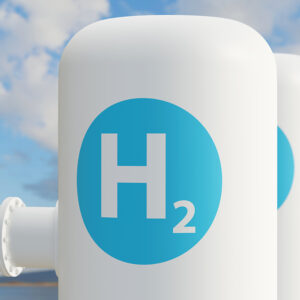With the Biden administration promising up to $1.6 billion for two hydrogen hubs in Southeastern and Western Pennsylvania, Democratic Gov. Josh Shapiro lauded the possibility of taxpayer funds being used to create more than 20,000 jobs.
If the green activists in his own party will let him, that is.
Under the Biden proposal, Pennsylvania would be home to the Mid-Atlantic Clean Hydrogen Hub (MACH2) and the Appalachian Regional Clean Hydrogen Hub (ARCH2). Early plans involve infrastructure for hydrogen fueling stations, hydrogen fuel for large-scale manufacturing, and carbon capture projects — a strategy to fight climate change.
However, generating hydrogen efficiently and at a low cost involves the use of fossil fuels, and green activists are just saying no.
A series of speakers told the state House Environmental Resources & Energy Committee on Monday they believe the hubs could damage Pennsylvania’s environment.
“Hydrogen made from fossil fuels is never a climate solution because the process emits substantial climate warming pollution even when it includes carbon capture technology,” said Lauren Piette of the group Earthjustice.
Asked why she opposed carbon capture and storage (CCS) technology that uses methane, Piette said it has not advanced to the point of being useful to adequately reduce emissions. She also said potential methane leaks could damage the environment.
On the other hand, the Massachusetts Institute of Technology’s Climate Portal says CCS projects are currently storing almost 45 million tons of CO2 every year, which is about the amount of CO2 emissions created by 10 million passenger cars.
For Shawn Bennett with Battelle, a contractor on the ARCH2 hub, the benefits are clear. He told House members the project would mean some $6 billion in investment and thousands of fulltime jobs. And it wouldn’t be happening, Bennett said, “without both low-cost natural gas and carbon sequestration.”
Julie McNamara with the Union of Concerned Scientists told the House panel that hydrogen production could “outright reverse” any environmental and public health gains made in the fight against climate. She lobbied for “clean” hydrogen, produced without the use of any fossil fuels.
But that would be far more expensive and inefficient. For example, the Center on Global Energy Policy at Columbia University reported in 2021 carbon capture reduced emissions, but hydrogen production costs increased by 20 to 80 percent.
Committee Chair Rep. Greg Vitali (D-Haverford) agreed with skeptics and said hydrogen production could “serve to perpetuate fossil fuel use” instead of fighting climate change.
American Petroleum Institute Pennsylvania Executive Director Stephanie Catarino Wissman told DVJournal that carbon capture is a win-win for environmentalists, business owners, and workers. She pointed to the Keystone State’s large natural gas supply and skilled workers.“[This] is critical to achieving meaningful emissions reductions,” she said.
Carbon capture proponents believe the technology can help lower emissions for industries like steelmaking and air transportation.
“[These industries] will not be decarbonized in time to meet emissions goals without low-carbon hydrogen,” Max Drickey, Team Pennsylvania Director of Energy Policy, told DVJournal. He said hydrogen from natural gas presented an alternative to other fossil fuels.
The U.S. Energy Information Agency ranked Pennsylvania second in the nation in natural gas production, behind only Texas. More than half of the state’s residents use natural gas to power their homes.
Pennsylvania is also the third-largest coal-producing state.
“These hydrogen proposals were supposed to be designed to build on regional resources, and Pennsylvania has an abundant supply of natural gas that can be used safely and responsibly with advanced technologies like carbon capture,” said Kurt Knaus with the Pennsylvania Energy Infrastructure Alliance for Energy. “This is a cleaner and greener pathway to decarbonizing our heavy industries, and it’s only the start of the energy and technology revolution we need to address some of our most pressing challenges to sustain our economy and protect the environment.”
The use of carbon capture could bring about the emissions-free world that environmentalists claim to want in the future.
“Hydrogen from hydropower, wind, solar and nuclear electricity will be key pieces of the hydrogen economy down the road. But those resources are not abundant enough in Pennsylvania for them to be the first step, and we know that both our economy and the climate requires us to act now,” said Drickey.

